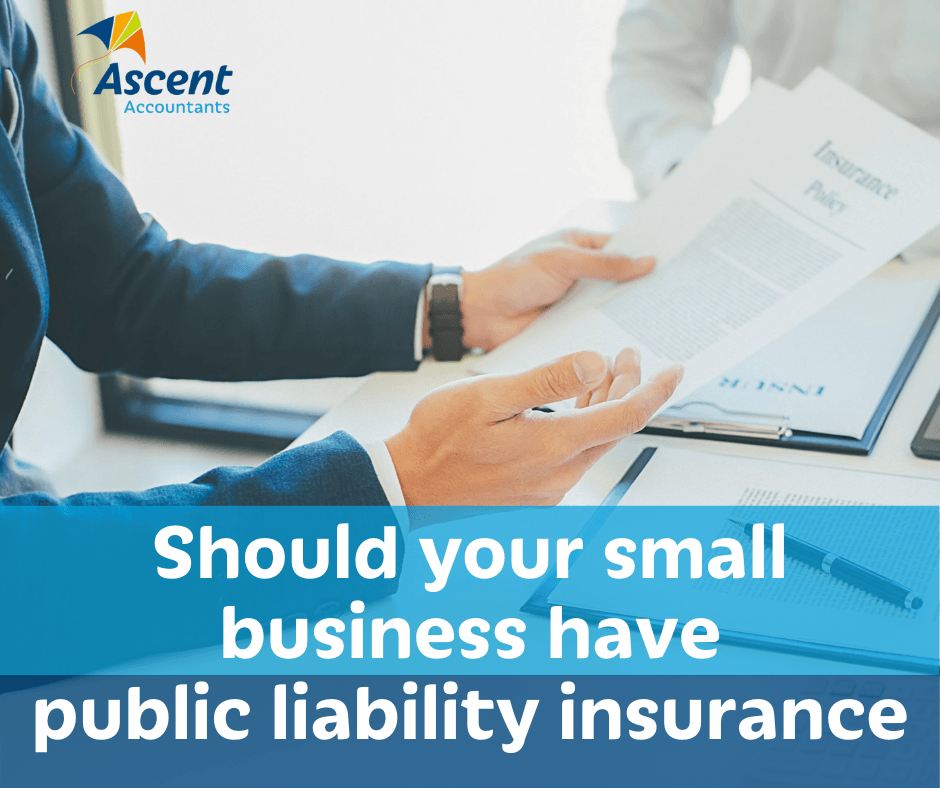Should your small business have public liability insurance?

But what is usually covered under Public Liability Insurance?
- Personal injury suffered by a third party (for example a supplier, customer or member of the public)
- Damage to property owned by a third party due to negligence in your business activities
- Legal and defence costs associated with a covered claim
- Some public liability policies will also provide cover for product liability
And what’s not covered under Public Liability Insurance?
- Injuries to your employees
- Damage to your own property
- Professional negligence
- Costs of rectifying faulty workmanship
- Contractual liability
- Events occurring before or after the policy period
Am I legally required to have Public Liability Insurance?
In Australia, Public Liability Insurance is usually not a legal requirement for small businesses. There are some exceptions where businesses are mandated to have Public Liability Insurance before they can legally operate. This being said, just because it’s usually not legally required, no matter how careful you are, it’s always better to be safe than sorry.
What are some of the main factors that mean I need Public Liability Insurance?
There are plenty of reasons why having Public Liability Insurance is the way to go. But here are some specific criteria that mean you should definitely consider Public Liability Insurance as soon as possible.
- If your business participates in or hosts public events that will be attended by members of the general public
- You manufacture and/or sell any kind of products
- You work on a client’s site
- You have customers, suppliers or members of the public visit your business premises
So how much Public Liability cover do I need?
Once you have decided that Public Liability Insurance is for you, the next step is figuring out what level of coverage you need. To do this, you need to consider the risks your business faces and any industry or contractual requirements that may be involved.
This is a decision that you need to personally make, as the exact amount of cover that you should have is rarely determined, therefore it’s ultimately up to you.
Certain things will help stipulate what sort of level you need, including the kind of business you run and the industry standards that come along with it.
Are my employees covered by my businesses Public Liability Insurance?
In short, your employees are not covered by Public Liability Insurance. Generally, this kind of insurance protects you against claims made against your business by customers or members of the public, but will not cover your employee if they are injured on the job. This kind of occurrence is covered by mandatory workers compensation insurance.
But what if I am a sole trader?
Being your own boss is many people’s dreams, which is why so many Australian’s have chosen to be a sole trader. As great as this business option is, it is not without risks.
Unlike when you work for a company, when you are a sole trader the reality is that when anything goes remotely wrong, it all falls on your shoulders. If any claims are made against you, this can often require you to pay from your own pocket, which has the potential to leave you in a lot of financial stress.
To avoid disaster, Public Liability Insurance is still a great insurance type to have, even if you’re a sole trader. Should an unplanned event occur, it will help protect your personal finances. As a small business owner, including one run as a sole trader, you have a legal responsibility to take the necessary steps to ensure a safe environment for any third parties who interact with your business. Public Liability Insurance is designed to do just that.
So what now?
Of course every case is unique, but Public Liability Insurance is something well worth considering if you are a small business owner. Please contact us of you would like information or contact details for your business insurance requirements.
Need help with your accounting?








